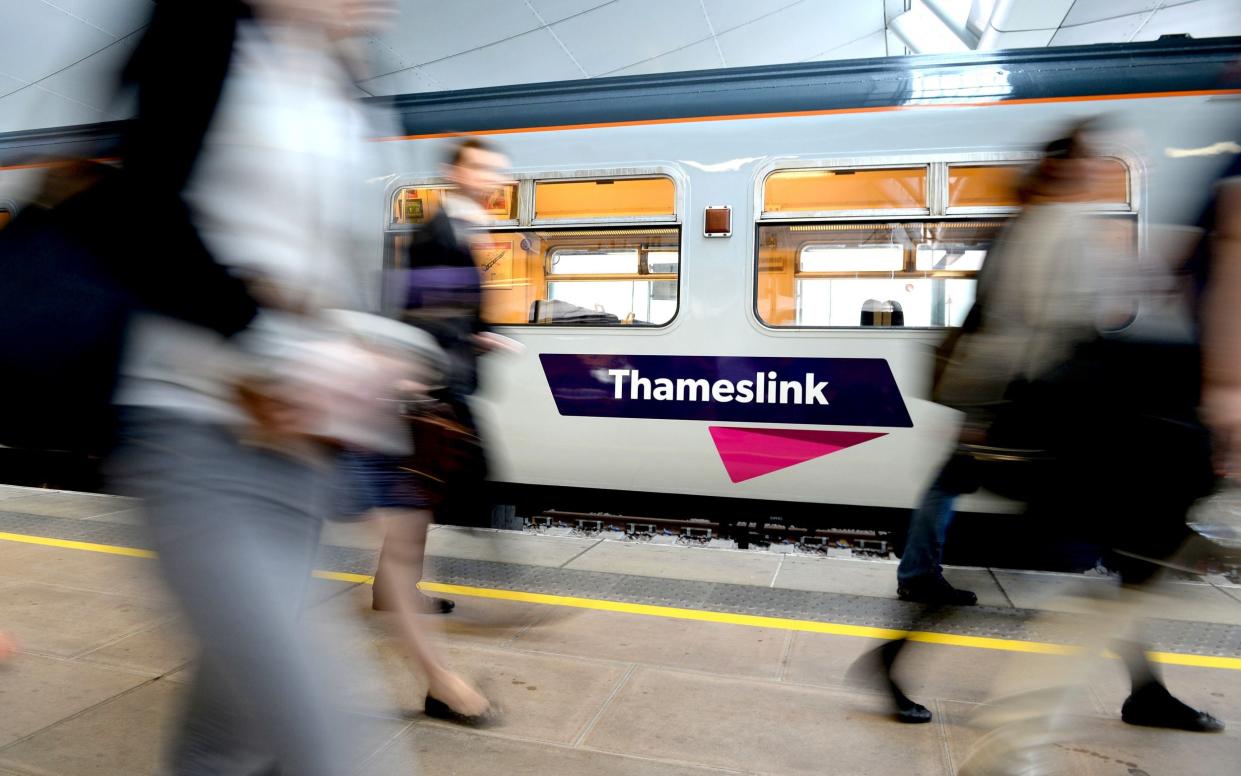Train companies set for bonuses after performance standards lowered

Train companies are set to earn bonus payments from the Government after performance standards were lowered to make them easier to meet.
Transport ministers have eased targets for areas including hygiene, staff helpfulness and graffiti after some railway companies struggled to meet them.
The Department for Transport (DfT) sets performance benchmarks for rail companies that are then monitored by the Office for Rail and Road (ORR), the watchdog.
Meeting those standards is part of the criteria for receiving millions of pounds in bonus performance payments from the Government.
However, The Telegraph understands that officials have reduced the so-called “service quality regime” targets because operators are failing to meet them.
The targets were introduced 18 months ago in a DfT drive to make train companies pay more attention to the condition of stations and platforms.
ORR inspectors mark companies’ performance, as well as taking into account mystery shopper scores for customer service quality, and responses to questions asked on social media.
Thameslink failed to meet seven out of the nine targets in the first year, 2022-23. All seven – including customer service, station information and cleanliness – were then lowered the next year.
Benchmark system criticised
Thameslink’s owners can earn up to £22.9 million per year in bonus payments paid from taxpayer money if they meet the service quality benchmarks as well as train punctuality targets set by ministers.
A company spokesman said: “Our absolute focus is on providing improved services for our customers, as demonstrated by nine out of 10 trains arriving within five minutes of their scheduled time in the year to March 2023.”
The operator Southeastern also had some performance targets slashed after failing to meet the higher standard for the same year, with the expected standard for cleanliness and graffiti reduced from 86 per cent to 54 per cent.
The operator has so far failed to meet the lower standards but is not eligible for performance bonus payments because it is nationalised.
A Southeastern spokesman said: “We will continue to work with the Department for Transport to target further improvements and we expect our service quality regime assessments to improve throughout the year as we work to build a better, more reliable and sustainable railway.”
The service quality benchmark system itself has been criticised for industry figures who claim that ratings do not accurately reflect the state of Britain’s trains and railway stations.
A source from a major passenger rail operator described the Government’s service quality regime framework as “just bonkers”, saying: “They were brought in with the best of intentions … but for example the hygiene requirements don’t bear any resemblance to what a clean or well-kept station looks like.”
Labour commitment to renationalisation
The source said that a missing paper roll in a set of station lavatories can trigger a “fail” rating under the service quality rating system, even if the rest of the facilities are clean and serviceable.
Labour has committed to renationalising passenger train companies, with Louise Haigh, the shadow transport secretary, saying last month: “I’ll be setting out our plans, actually in just two or three weeks’ time, which will demonstrate how we’ll save money and how that money will bring those operators into public ownership, all of them, within the first term of a Labour government.”
She told GB News: “There’s absolutely no compensation provided to the operators.”
Mark Harper, the Transport Secretary, has rejected the idea of full state ownership as a fix for the railways’ problems, which include ongoing strikes by the Aslef trade union on pay rises for drivers.
The Government said that the union rejected a pay deal that would have seen these salaries rise from £60,000 to an average of £65,000.
Speaking to a Conservative conference a few weeks ago, Mr Harper said: “I think there is a role for the state in setting the overall regulatory structure for the rail network. But you also need to have it working in partnership with the private sector. And I think there’s a role for both.”
Last year the railways needed £12 billion in public subsidies to function, with £4.4 billion of that sum going to passenger train companies.
That sum has fallen from the £19.4 billion required to prevent the railways from collapsing in 2020-21, during the worst of the Covid pandemic, but remains higher than the £7.4 billion needed in 2019.
A DfT spokesman said: “Performance should be assessed through targets that are achievable and incentivise operators to deliver concrete improvements that benefit passengers.”

